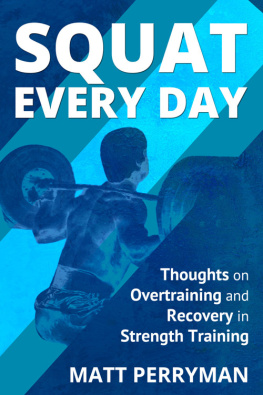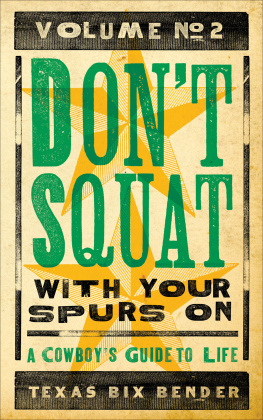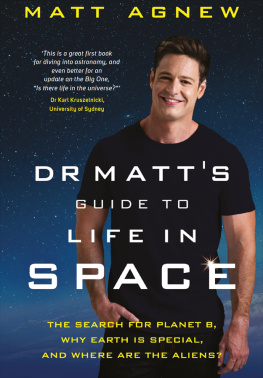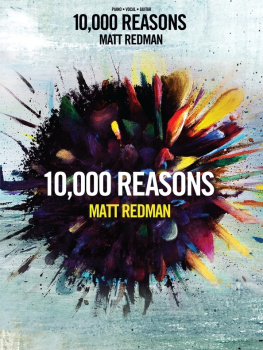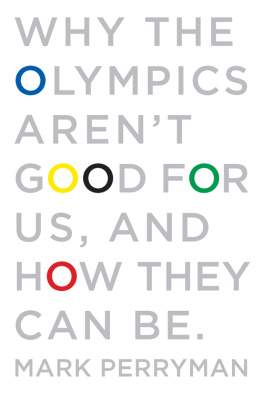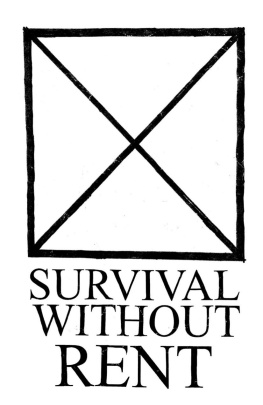Matt Perryman - Squat Every Day
Here you can read online Matt Perryman - Squat Every Day full text of the book (entire story) in english for free. Download pdf and epub, get meaning, cover and reviews about this ebook. year: 2013, publisher: Myosynthesis, genre: Romance novel. Description of the work, (preface) as well as reviews are available. Best literature library LitArk.com created for fans of good reading and offers a wide selection of genres:
Romance novel
Science fiction
Adventure
Detective
Science
History
Home and family
Prose
Art
Politics
Computer
Non-fiction
Religion
Business
Children
Humor
Choose a favorite category and find really read worthwhile books. Enjoy immersion in the world of imagination, feel the emotions of the characters or learn something new for yourself, make an fascinating discovery.
- Book:Squat Every Day
- Author:
- Publisher:Myosynthesis
- Genre:
- Year:2013
- Rating:5 / 5
- Favourites:Add to favourites
- Your mark:
- 100
- 1
- 2
- 3
- 4
- 5
Squat Every Day: summary, description and annotation
We offer to read an annotation, description, summary or preface (depends on what the author of the book "Squat Every Day" wrote himself). If you haven't found the necessary information about the book — write in the comments, we will try to find it.
Squat Every Day — read online for free the complete book (whole text) full work
Below is the text of the book, divided by pages. System saving the place of the last page read, allows you to conveniently read the book "Squat Every Day" online for free, without having to search again every time where you left off. Put a bookmark, and you can go to the page where you finished reading at any time.
Font size:
Interval:
Bookmark:
For other goodies, visit
www.myosynthesis.com
Squat Every Day: Thoughts on Overtraining and Recovery in Strength Training.
Copyright 2013 by Matt Perryman. Some rights reserved. This work is released under a Creative Commons Attribution-NonCommercial-ShareAlike 3.0 license. This license permits non-profit sharing, downloading, and reproduction of this book as an unbroken unit, provided that attribution is properly assigned.
To view a copy of this license, visit http://creativecommons.org/licenses/by-nc-sa/3.0/
Myosynthesis
First Edition: May 2013
PART ONE: Disturbing the Status Quo
PART TWO: Recovery Matters
PART THREE: How to Squat Every Day
This book started as an experiment I did on myself. Long-time readers of my blog at Myosynthesis.com will know that I started tinkering with daily squatting back in early 2010. I hadnt intended to do anything but try it out for awhile, just to see what would happen. I honestly expected a crash-and-burn inside a few weeks.
But it never came. In fact, it started to feel like the exact opposite. The squat numbers kept going up as long as I kept turning up. I expected more injuries, but those never materialized either. Instead, my long-aching joints and sore spots, some of which Id thought were career-enders, started to feel better.
I started taking notes, sifting through research papers, and trying to figure out why this was happening. Based on everything I thought I knew at the time, my body should have been stressed to the breaking point and it just wasnt. I blogged about what was going on, and I was content to leave it at that.
I didnt have any intention of writing a book about it. After all, its one thing for a top-caliber athlete to train every day, multiple times at that. They have the skill, the bodies, and the incentive. It didnt seem like there would be any appeal for programming that specialized, requiring that much of a time commitment and dedication, for the recreational lifters and bodybuilders that I write for. Im far from a top-tier athlete, and while I like to tinker with strategies that Id never officially recommend, it didnt occur to me that thered be anything of real interest here, beyond the novelty of it.
The more I thought about it, though, the more I realized that what Id stumbled upon wasnt just about squatting to a max every day. There was more here, potentially much more, hidden away in the assumptions we all make about our bodies, about our training, and how it all hangs together behind the scenes. At the time, Id been following John Brozs lifters, reading his thoughts on the Bulgarian system he used, and watching the progress videos on YouTube. I was following Jamie Lewiss Chaos & Pain blog, reading his exploits in the land of extreme training. There was a pattern at play here a pattern that transcended the usual excuses of genetics and steroids and I wanted to figure out what it was.
It was about a year later when I was convinced to write a book about the topic. By that point Id put in my own time with the system, come up with some good reasons to support it, and frankly I was sold. Not as a program or even a workout system, but as a different way of looking at fitness, at strength-building, and the process of recovery.
So here we are.
Those of you familiar with my older work will notice that I have made a sharp departure from my usual scientific approach. In the last few years, my views on science, especially sciences role in establishing truth in fitness and nutrition, have changed so much that it qualifies as a complete break.
The internet has developed whole communities who believe that fitness and strength can be reduced to numbers and captured in micro-level facts about biochemicals and cellular biology. The conclusions drawn are Truth given by the authority of Science. The more oblique references listed, the more scientific. Lets call this Pubmed Science.
It sounds good, but this style of truth-seeking is as mythical as the gym-rumors it aims to counter. Combing abstracts for biochemical information or the hormonal responses of athletes or some such trivia removes you from the realities of actually lifting a weight. It strips away all the context and creates mock-quote facts in a vacuum. In the absence of any grounding, its easy to construct a whole reality out of those facts, one which has little to do with the world we live in.
Pubmed Science is more like telling a story, crafting a beautiful narrative out of scientific factoids. It gives you that story we all need to tell ourselves, that we know what is going on and, more to the point, that we have control over it. Im all for the safety blankets of illusions, but not when the illusion is held up as a superior, objective, non-biased account of reality.
My strategy here is not so novel, and will probably seem like common sense to many of you. What Im doing here is shifting the priority away from the abstract theoreticals and instead grounding my ideas in the practical.
Any practitioner, whether were talking the line technician who keeps the phone lines working or the MD who keeps you healthy, has more knowledge than is immediately evident from their educational background and formal training. There is an unspoken and unspeakable element in the Doing. The term for this is tacit knowledge .
Dealing with the contingencies and uncertainties of Reality means that we just cant write down every last detail, or even a formal list of rules and good ideas. Some things are going to remain fuzzy, and youll have to make judgment calls based on necessarily incomplete information.
Pubmed Scientists see this as a problem, expecting that all questions about living bodies will have distinct, objective, true answers. I dont believe that either is the case. Biological systems largely wont have concrete answers of the sort youd find in physics or chemistry but, well, so what? I believe its wrong-headed to expect those answers in the first place, and on the other hand, the fuzziness works in our favor because we dont need concrete answers at all. Our judgment about what next? is oftentimes better than any scientific reply.
In this book, I start with the assumption that Doing takes precedence over the abstract theorizing of Pubmed Science. In strength training, it is getting in the gym, paying attention to your body, and keeping records that forms our starting point. I start with the premise that not having a precise answer is no problem at all. The idea is to use that knowledge you amass while Doing and learn how to deal with uncertainty.
With that grounding of personal knowledge to start with, then and only then we look to the research to give that knowledge context. Formal research is wonderful for explaining why some observations might be happening, and that is the methodology I have used. The science here is in the service of what I saw happening in the gym, not the other way around.
While this is, officially, a book on strength training and fitness, these themes of tacit knowledge, acceptance of uncertainty, and rejection of reductionist Pubmed Science lie beneath everything youre about to read, and I would suggest that you read it with that in mind.
Finally, besides the usual disclaimers about getting medical clearance before beginning any such program and such, I would add that nothing written herein is intended as the last word on any subject. This is a record of an experiment I conducted on myself and with the input of acquaintances who decided to throw in and see what would happen.
Consider this the starting point of a dialogue rather than the an authoritative final word on the matter.
Whenever you find yourself on the side of the majority, it is time to pause and reflect.
Next pageFont size:
Interval:
Bookmark:
Similar books «Squat Every Day»
Look at similar books to Squat Every Day. We have selected literature similar in name and meaning in the hope of providing readers with more options to find new, interesting, not yet read works.
Discussion, reviews of the book Squat Every Day and just readers' own opinions. Leave your comments, write what you think about the work, its meaning or the main characters. Specify what exactly you liked and what you didn't like, and why you think so.

